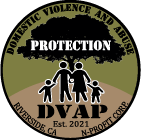Teen dating violence is an often-overlooked issue impacting young individuals across California, including here in Riverside. While often mistaken for the challenges associated with growing up, teen dating violence is a real and significant form of abuse that can leave lasting emotional and physical scars. By raising awareness and equipping teens, families, and educators with the right tools, we can foster a future of healthy, respectful relationships.
What Is Teen Dating Violence and How Is It Different From Adult Abuse?
Teen dating violence refers to patterns of abusive behavior in a romantic relationship where at least one partner is a teenager. It can take multiple forms, including physical, emotional, sexual, and digital abuse. While many of the warning signs overlap with adult abuse, teen dating violence is often characterized by unique challenges. These include limited relationship experience, increased reliance on digital communication, and a lack of access to resources or support networks.
Unlike adults, teens may not yet fully understand what healthy relationships should look like, making them particularly vulnerable to manipulation. Additionally, peer pressure and the desire for acceptance can sometimes mask abusive dynamics or prevent teens from seeking help.
Common Signs That a Teen Might Be in an Unhealthy or Abusive Relationship
Recognizing the warning signs of abuse is the first step in supporting teens and addressing the issue. Some common indicators include:
- Isolation: The teen begins withdrawing from friends, family, or favorite activities, often at the encouragement of their partner.
- Excessive communication control: Their partner frequently checks their phone, demands updates on their whereabouts, or criticizes their online activity.
- Unexplained mood shifts: The young person may appear anxious, depressed, or fearful, especially when discussing their partner.
- Physical injuries: Visible bruises, scratches, or other signs of harm could signal physical abuse.
- Verbal or emotional manipulation: Constant belittling, guilt-tripping, or threats from their partner may erode the teen’s self-esteem.
It’s critical for parents, teachers, and peers to remain attentive and offer compassionate support if they notice these behaviors.
How Parents and Educators Can Foster Open, Safe Conversations With Teens
Creating an environment where teens feel comfortable discussing their relationships is essential. Parents and educators can take the following steps to open a dialogue and provide guidance without fear or judgment:
- Ask open-ended questions: Instead of prying, ask about their feelings, experiences, and perceptions of their relationship in a gentle, non-confrontational way.
- Normalize conversations about relationships: Discussing topics like dating, boundaries, and healthy partnerships should be an ongoing dialogue—not a one-time talk.
- Validate their feelings: Avoid dismissing their emotions as “puppy love” or inconsequential. Acknowledge that their relationships are meaningful to them and deserve attention.
- Establish trust: Reassure teens that they won’t be punished or judged for sharing their experiences.
Building trust and open communication creates space for youth to speak up when something doesn’t feel right.
Teaching Young People About Boundaries, Respect, and Emotional Safety
Relationship education for youth is one of the most effective ways to prevent teen dating violence before it starts. Teaching teens about boundaries, mutual respect, and emotional safety empowers them to build and maintain healthy connections.
Here are some fundamental lessons to share with teens about relationships:
- Understand Consent: Both partners should give clear, enthusiastic consent in every aspect of their relationship.
- Respect Personal Space: Each person has the right to define their boundaries and have them respected.
- Communicate Openly: Healthy relationships require honest, non-judgmental communication where both individuals can speak their minds.
- Recognize Red Flags: Help teens identify controlling, manipulative, or abusive behaviors early.
- Value Emotional Health: Teach young people to prioritize their emotional well-being and to step away from relationships that cause harm or distress.
By empowering our youth with this knowledge, we plant the seeds for a future where respect and equity are at the heart of every partnership.
Resources and Support Services for Teens in Riverside, CA
Riverside is home to various resources aimed at supporting teens who may be experiencing or witnessing dating violence. If you or someone you know might need help, consider turning to these trusted services and organizations for assistance:
- Domestic Violence and Abuse Protection, Inc. (DVAP): Our nonprofit organization is here to provide legal protection and emergency aid to survivors of abuse. Call us at (951)-275 8301 or email admin@dvapriverside.org for immediate support.
- Local Counseling Services: Many counseling centers in Riverside specialize in working with teens and offer affordable or free mental health support.
- School Counselors and Educators: Schools can often serve as a first line of defense. Encourage teens to reach out to a trusted teacher or counselor for guidance.
- Hotlines: The National Teen Dating Abuse Helpline and similar services provide 24/7 confidential support to those in need.
Every survivor deserves access to safety and support, and these resources are here to make that possible.
Are You Experiencing Domestic Violence or Abuse? DVAP Is Here To Help
Domestic Violence and Abuse Protection, Inc. is a non-profit organization committed to protecting the victims of domestic abuse. When restraining orders are not enough, we are there to provide the determined protection you deserve. We are located at 3900 Orange St. Riverside, CA. Call us at (951)-275 8301 (24 hours). Alternatively, you can email us at admin@dvapriverside.org.






